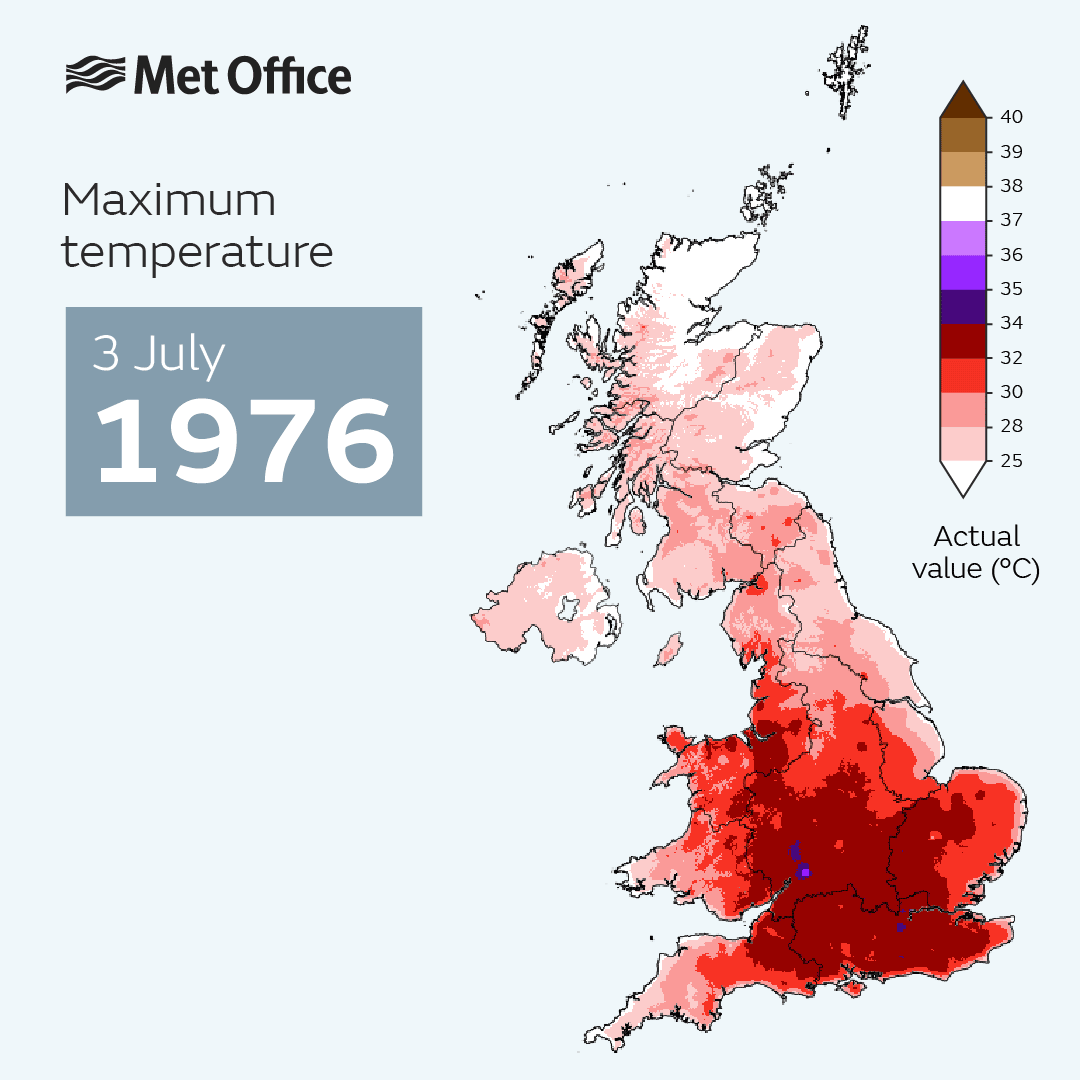A Summer of Record-breaking Heatwaves and Hurricanes
by Bonnie Schneider, National Television Meteorologist & Author of Taking the Heat: How Climate Change is Affecting Your Mind, Body & Spirit, and What You Can Do About It
A Region Built To Keep The Heat In

Climate change is leading to unprecedented heat waves occurring around the world. Most recently on July 19th, records were shattered in the UK with a new national record high of 40.3 °C (104.5 °F). Overnight records were set as well, when Kenley Airfield, Greater London, recorded a new highest minimum temperature of 25.8°C (78.4 °F).
According to the UK Met office: human-induced climate change is making UK heatwaves more frequent, intense and long-lasting. Seven of the ten hottest days on record in the UK occurred within the past two decades and this number is only expected to continue rising.
Met Office Chief Scientist Professor Stephen Belcher said: “In a climate unaffected by human influence, climate modeling shows that it is virtually impossible for temperatures in the UK to reach 40°C.
“Under a very high emissions scenario we could see temperatures exceeding 40 degrees as frequently as every three years by the end of the century in the UK. Reducing carbon emissions will help to reduce the frequency, but we will still continue to see some occurrences of temperatures exceeding 40°C and the UK will need to adapt to these extreme events.”
Stay Safe During Extreme Heat:
- As the climate crisis worsens, extreme heat is putting more and more people at risk. The Climate Psychiatry Alliance offers helpful toolkits in English, Spanish and Mandarin that can help >>>> https://climatepsychiatry.org/
heattoolkits - Many heat-related deaths occur in cars. Never leave children or pets in a car with no air-conditioning - even for a moment. Vehicles heat up quickly and that heat can be fatal to young children. Children are at a higher risk than adults of dying from heat stroke in a hot vehicle because their bodies heat up 3 to 5 times faster than adults.
How Climate Change Affects Hurricane Season
The summer of 2022 is not only forcing people to endure record-breaking high temperatures, but hurricane season has yet to fully ramp up. Activity in the tropics typically ramps up in August, and reaches its peak around September 10th.
This year's hurricane season is predicted to be "above average" in terms of named storms. For 2022, NOAA is forecasting a likely range of 14 to 21 named storms (winds of 39 mph or higher), of which 6 to 10 could become hurricanes (winds of 74 mph or higher), including 3 to 6 major hurricanes (category 3, 4 or 5; with winds of 111 mph or higher). NOAA provides these ranges with a 70% confidence.
Climate change affects tropical systems in a variety of ways:

1) Heavier Rain/Floods: tropical cyclone rainfall rates are projected to increase in the future due to global warming and accompanying increase in atmospheric moisture content. Modeling studies on average project an increase on the order of 10-15% for rainfall rates averaged within about 100 km of the storm for a 2 degree Celsius global warming scenario.
2) Greater Destructive Power: tropical cyclone intensities globally are projected to increase by up to 10% under 2 degrees Celsius warming. This change would imply an even larger percentage increase in the destructive potential per storm.
3) More Intense Storms: the global proportion of tropical cyclones that reach very intense (Category 4 and 5) levels is projected to increase.
(source: NOAA)
Stay Safe During Hurricanes:
Hurricanes are massive storm systems that form over ocean water and often move toward land. Hurricanes bring high winds, heavy rain, storm surge (rise in water level), flooding and tornadoes. These storms are dangerous and can cause damage to places far inland. Prepare now so you can stay safe.
(Source: Red Cross)


